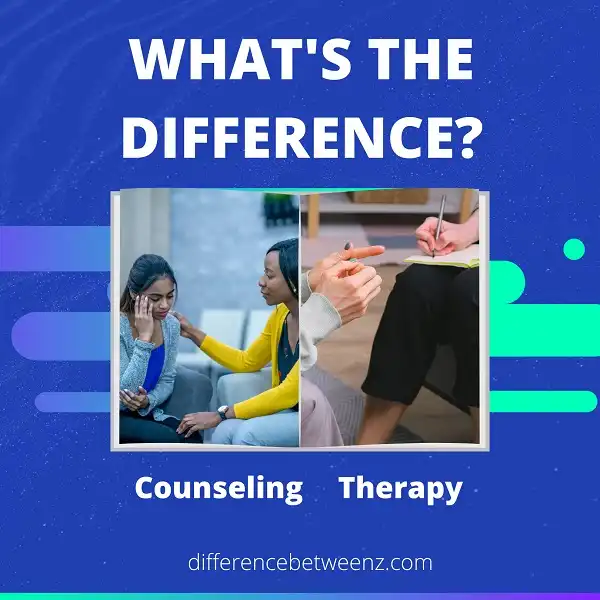The terms “counseling” and “therapy” are often used interchangeably, but they actually have different meanings. Counseling typically refers to short-term, goal-oriented sessions aimed at resolving specific problems. Therapy, on the other hand, is a longer-term process that can involve both counseling and psychiatric treatment. If you’re not sure which type of help is right for you, consult with a mental health professional to discuss your options.
What is Counseling?
Counseling is a type of therapy that helps people manage their feelings, thoughts, and behaviors. Counselors work with individuals, couples, families, and groups to help them understand and change the things that are causing their problems. Counseling is different from other types of therapy, such as psychoanalysis, because it focuses on the here-and-now rather than on the past.
Counseling is also different from psychotherapy in that it is shorter in duration and typically less expensive. Counselors use a variety of techniques to help their clients, including individual counseling, group counseling, and family counseling. Counseling can be an effective treatment for many different types of problems, such as depression, anxiety, relationship issues, and substance abuse.
What is Therapy?
Therapy is a process of treatment for mental, emotional, or behavioral issues. It can be provided by a psychiatrist, psychologist, social worker, counselor, or other mental health professional. Therapy can be conducted one-on-one, in a group setting, or even online. The goal of therapy is to help individuals understand and work through their challenges so that they can live happier and more fulfilling lives. Therapy can be an invaluable tool for those struggling with mental illness, trauma, grief, stress, anxiety, and many other issues. If you are struggling with any issue, big or small, consider reaching out to a therapist for help.
Difference between Counseling and Therapy
Counseling and therapy are both important methods of support and mental health care. Counseling is typically shorter term, more solution-focused, and aimed at specific goals. Counseling can address a number of different issues such as grief, relationship problems, stress management, and coping with a crisis. Therapy is more long-term, exploratory, and delves more deeply into past experiences and emotions. Therapy can be helpful for addressing issues such as anxiety, depression, trauma, and low self-esteem. Both counseling and therapy can be very beneficial, and the best approach for an individual depends on their unique needs and situation.
Conclusion
The main difference between counseling and therapy is that counselors typically have a more generalized focus, while therapists are experts in one specific area. If you’re considering seeking professional help for yourself or a loved one, it’s important to understand the differences between these two disciplines so you can make an informed decision about what type of care is best suited for your needs.


